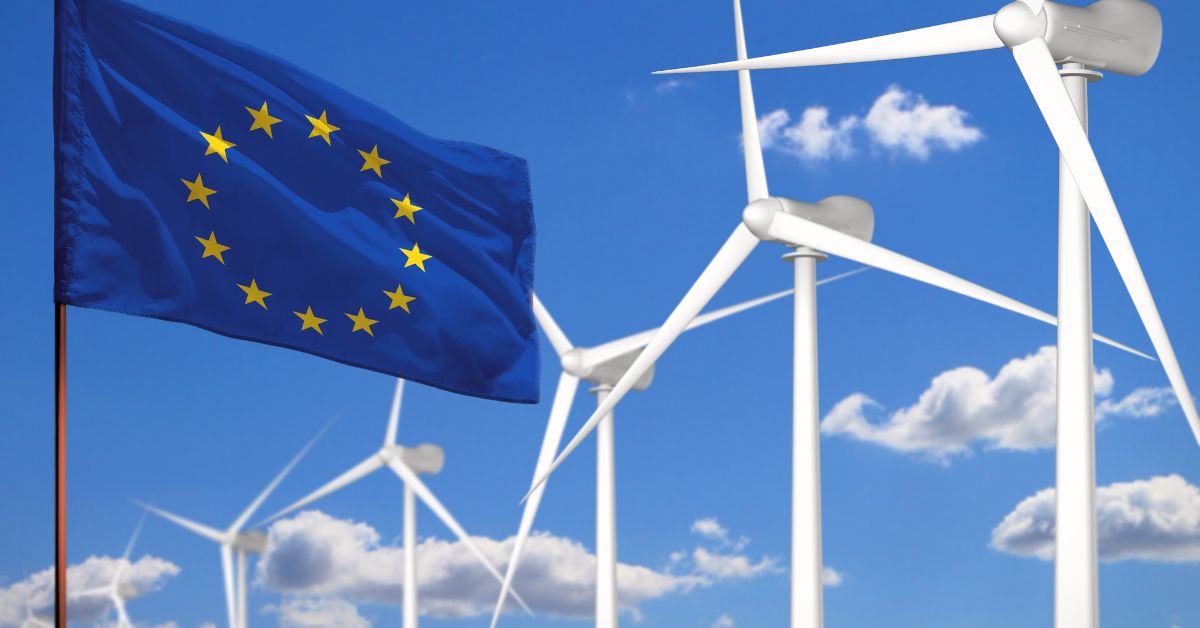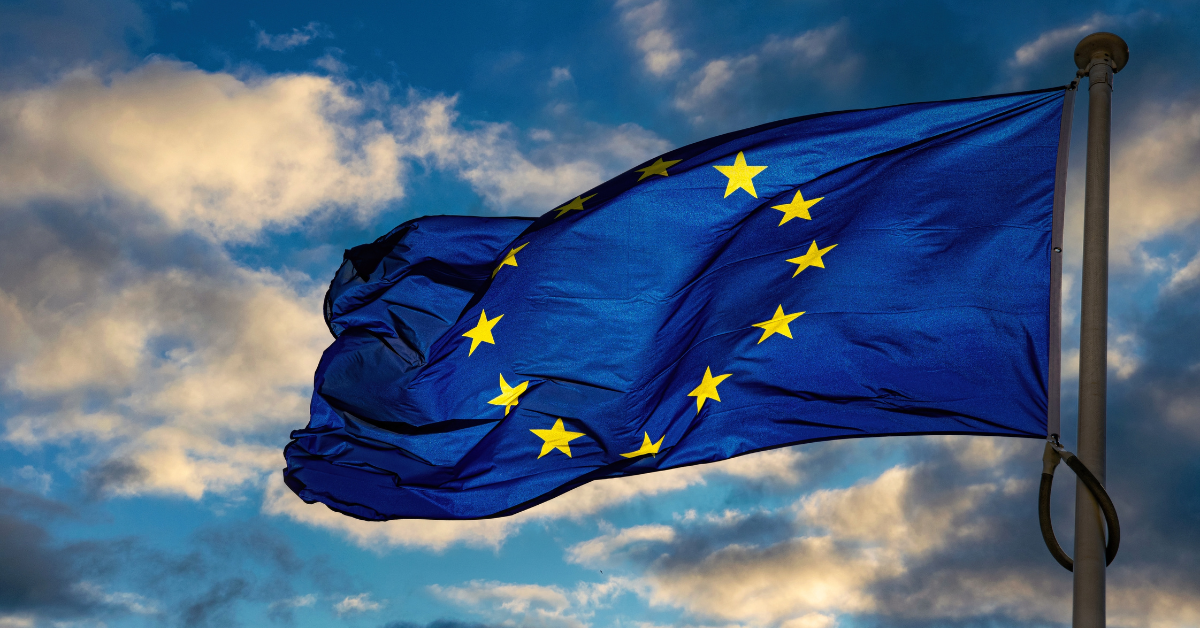
Explore 6 major sustainability trends of 2025 reshaping businesses: ESG integration, digital transformation, stricter reporting, supply chain transparency, and more..
2025 has been a critical year for sustainability, marking a significant moment in the global effort to address environmental challenges.
As awareness of climate change intensifies, governments, businesses, and communities worldwide are amplifying their commitment to sustainable practices with innovations in corporate sustainability, circular economy models, and green technologies reshaping industries and fostering a mentality shift.
Such a shift of business mentality is underpinned by tangible data, regulatory pressures, and international agreements, highlighting the critical importance of integrating sustainability into core business operations.
Below are six sustainability trends reshaping the corporate landscape that demand immediate attention.
1. Integration of ESG into Corporate Strategy
Integrating Environmental, Social, and Governance (ESG) factors into corporate strategy is no longer optional; it's a necessity driven by investor demand, regulatory pressures, and international commitments.
The Paris Agreement, reaffirmed at COP26 and COP27, has set a clear trajectory towards limiting global warming to well below 2°C, with efforts to limit it to 1.5°C requiring a global commitment supported by significant contributions from the private sector.
Even if with some delays, regulatory bodies are following this direction.
In recent years, especially throughout 2024 and 2025, regulatory momentum has intensified across the EU and beyond with frameworks such as the Corporate Sustainability Reporting Directive (CSRD), the Corporate Sustainability Due Diligence Directive (CSDDD) which have been revised by the new Omnibus Directive to be more accessible to businesses.
In this context, the Omnibus Simplification Package has driven the integration of new standards and reporting requirements for SME through the adoption of the EFRAG VSME Standard, reflecting a broader push toward greater corporate transparency, responsibility, and alignment with long-term environmental and social goals.
Furthermore, according to the Global Sustainable Investment Alliance's 2022 Global Sustainable Investment Review, sustainable investment assets under management remained substantial at $35.3 trillion globally, representing 36% of all professionally managed assets.
While these figures mirror the 2020 data, they reflect more stringent criteria and reclassification in sustainable investment definitions, especially in Europe, where it underscores that integrating ESG into corporate strategy is essential not just for compliance but also for attracting investment and enhancing financial performance.
How ESG Integration Drives Business Success
Strategic ESG integration isn’t just a compliance exercise as it creates measurable advantages for forward-thinking companies.
It enhances access to capital by meeting the disclosure expectations of investors increasingly reliant on ESG data to assess long-term risk and opportunity, it builds brand trust by demonstrating accountability and responsiveness to stakeholder concerns, particularly among younger, more sustainability-conscious consumers, and internally, ESG-aligned companies attract and retain talent by fostering purpose-driven cultures and resilient governance structures.
Moreover, embedding ESG into core operations improves risk management by identifying vulnerabilities, whether regulatory, reputational, or climate-related, early and systematically.
2. Increased Stakeholder Engagement
Transparency and proactive communication with stakeholders regarding sustainability efforts have become critical components of corporate success. The Glasgow Climate Pact, resulting from COP26, emphasized the need for non-state actors, including businesses, to enhance their climate actions and report transparently.
In response, regulatory frameworks are evolving.
The Task Force on Climate-related Financial Disclosures (TCFD) recommendations, supported by over 2,600 organizations globally, are becoming de facto standards for climate-related reporting.
A 2023 survey by Edelman found that 86% of global consumers expect CEOs to lead on societal issues, including environmental challenges. Furthermore, 99% of investors consider a company's social and environmental impact when making investment decisions, according to EY.
These figures highlight the growing demand for corporate leadership in sustainability, emphasizing that integrating ESG into corporate strategy is essential not just for compliance but also for attracting investment and enhancing financial performance.
Building Trust Through Transparent ESG Reporting
Transparent ESG reporting has become a fundamental aspect of doing business in today’s environment.
The adoption of recognized frameworks such as the Global Reporting Initiative (GRI), the Sustainability Accounting Standards Board (SASB), and, more recently, the European Sustainability Reporting Standards (ESRS) introduced by CSRD, is helping companies meet rising expectations for clarity, consistency, and comparability in their disclosures.
These frameworks support organizations in going beyond box-ticking, enabling them to tell a more complete story of how they create value and manage risk.
Nonetheless, transparent ESG reporting also supports stronger stakeholder relationships.
Investors are increasingly integrating ESG data into their decision-making to assess long-term performance, customers are choosing brands that align with their values and employees are more likely to stay with and feel motivated by companies that prioritize social and environmental responsibility.
Digital Transformation in Sustainability Management
The acceleration of digital transformation is significantly enhancing sustainability management by providing advanced tools for monitoring, reporting, and optimizing environmental performance.
The International Data Corporation predicts that global spending on digital transformation technologies will reach $2.8 trillion by the end of 2025, with a substantial portion directed towards sustainability initiatives.
Regulatory requirements are also driving this trend with the EU's Sustainable Finance Disclosure Regulation (SFDR), effective since March 2021, which financial market participants to disclose detailed ESG data, necessitating robust digital systems for data collection and reporting.
Companies are adopting Internet of Things (IoT) technologies to reduce energy consumption and emissions. Additionally, the use of blockchain for supply chain transparency has been shown to increase efficiency by 15% and reduce errors by up to 70%, as reported by Deloitte.
The Role of IoT and Blockchain in Sustainability
IoT and blockchain are increasingly central to how organizations manage and demonstrate their commitment to sustainability.
IoT technologies provide real-time visibility into energy consumption, emissions, and resource efficiency across assets and operations, granting a high level of data granularity that empowers companies to identify patterns, anticipate risks, and optimize processes with greater precision, shifting sustainability from reactive compliance to proactive performance management.
Blockchain, meanwhile, brings transparency and integrity to sustainability reporting and supply chain oversight by creating secure, immutable records of transactions and environmental data.
In doing so, the technology enables stakeholders to verify claims related to sourcing, carbon accounting, and ESG commitments with confidence, making it particularly valuable in complex, global value chains where traceability and trust are often lacking.
4. Evolving ESG Reporting Regulations
Governments and regulatory bodies worldwide are implementing more rigorous ESG reporting requirements, pushing companies towards greater transparency and accountability.
The International Sustainability Standards Board (ISSB) released its first two sustainability disclosure standards, IFRS S1 and IFRS S2, in June 2023, establishing a comprehensive global baseline for sustainability disclosures—a move endorsed by participants at COP27.
Another interesting data can be found in KPMG's Survey of Sustainability Reporting 2022, where it is highlighted that 96% of the world's largest 250 companies (G250) now report on sustainability, reflecting the impact of these regulatory developments.
Navigating the New ESG Reporting Standards
In 2025, ESG reporting requirements have become more harmonized across Europe, following the adoption of the Omnibus Directive, which complements and reinforces the Corporate Sustainability Reporting Directive (CSRD), introducing key technical amendments and clarifying cross-cutting provisions related to the implementation of the European Sustainability Reporting Standards (ESRS).
By streamlining references across various EU regulations, the Omnibus Directive has enhanced legal coherence and removed ambiguities that could hinder ESG disclosure obligations.
The impact of these regulatory updates is already visible.
As of mid-2025, thousands of large and listed companies across the EU are publishing sustainability statements following the ESRS, with national authorities increasing their oversight capacities.
5. Supply Chain Transparency
Supply chain sustainability has become a paramount interest, extending beyond individual companies to encompass entire supply chains.
Businesses are increasingly held accountable for the environmental, social, and governance (ESG) practices of their suppliers and partners pushed by the circular economy approach which is gaining traction, focusing on reducing waste, conserving resources, and extending product lifecycles.
Nonetheless, regulatory frameworks are pushing the change.
In Europe, the EU Corporate Sustainability Due Diligence Directive (CSDDD) mandates large companies to assess and mitigate human rights and environmental risks throughout their supply chains.
Similarly, the UK's Modern Slavery Act and Germany's Supply Chain Due Diligence Act impose strict ethical sourcing requirements.
To meet these challenges and capitalize on emerging opportunities, companies are implementing innovative strategies.
Innovations in Supply Chain Management
In 2025, companies are leveraging advanced technologies and strategic partnerships to enhance visibility and accountability across their supply chains. The use of blockchain for traceability continues to gain momentum, with platforms such as IBM Food Trust and Everledger enabling real-time, tamper-proof tracking of goods from origin to end-user. Artificial intelligence is also playing a central role, allowing firms to identify ESG risks and inefficiencies proactively through predictive analytics and natural language processing of supplier data.
A notable trend is the integration of digital product passports (DPPs), driven by the EU’s Ecodesign for Sustainable Products Regulation (ESPR), expected to take effect progressively from 2026.
These passports store and share key sustainability-related data, including material composition, reparability, and carbon footprint, across the entire value chain, promoting circularity and informed decision-making.
Companies are also embracing supplier engagement platforms that promote collaboration on decarbonization targets and social compliance. Tools such as EcoVadis, and Sourcemap have expanded their capabilities in 2025 to support dynamic risk assessments, tier-2 and tier-3 supplier mapping, and real-time ESG performance monitoring.
Furthermore, voluntary initiatives are converging with regulatory expectations: for example, the OECD Guidelines for Multinational Enterprises, updated in 2023 and operationalized more concretely in 2025, are now embedded into many corporate procurement policies.
6. Climate Risk Assessment and Adaptation
With the escalating impacts of climate change, businesses are prioritizing the assessment of climate-related risks and developing adaptation strategies to ensure long-term resilience.
The World Economic Forum's Global Risks Report 2024 identified climate action failure and extreme weather events as top global risks.
Extreme weather events, such as hurricanes, floods, wildfires, and heatwaves, are becoming more frequent and intense, damaging infrastructure, disrupting supply chains, and leading to operational disruptions. Rising sea levels threaten coastal cities and regions, while water scarcity impacts industries like agriculture, manufacturing, and energy.
To mitigate these risks, businesses should conduct comprehensive climate risk assessments, develop robust adaptation plans, set ambitious emissions reduction targets, and adhere to disclosure frameworks like the Task Force on Climate-related Financial Disclosures (TCFD).
Engaging with stakeholders, including investors, customers, employees, and suppliers, is crucial to address climate-related issues and build trust.
Keeping up with a changing world
The integration of sustainability into the core fabric of business operations is no longer a forward-thinking strategy, it's an immediate imperative substantiated by compelling data, regulatory pressures, and international agreements.
The trends of ESG integration, stakeholder engagement, digital transformation, stricter reporting regulations, supply chain transparency, and climate risk assessment and adaptation are redefining the parameters of corporate success.
Businesses that proactively embrace these trends are better positioned to mitigate risks, capitalize on new opportunities, and meet the evolving expectations of investors, consumers, regulators, and international commitments.
Ignoring these sustainability trends is not just a missed opportunity but a strategic oversight that could jeopardize a company's future viability



